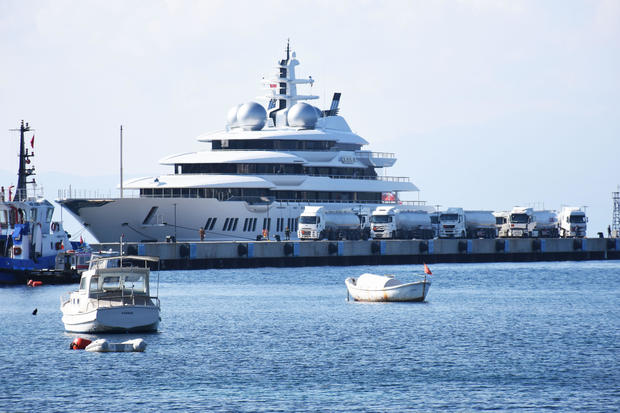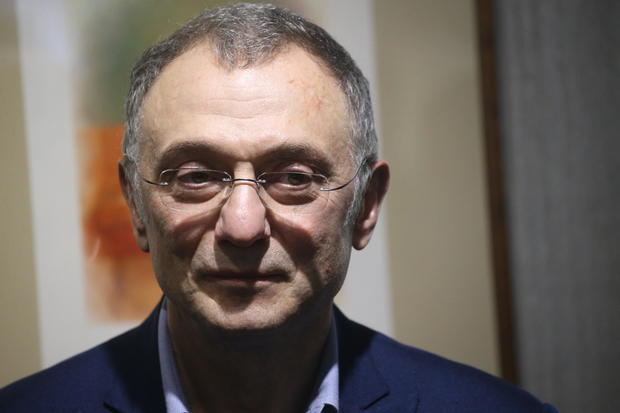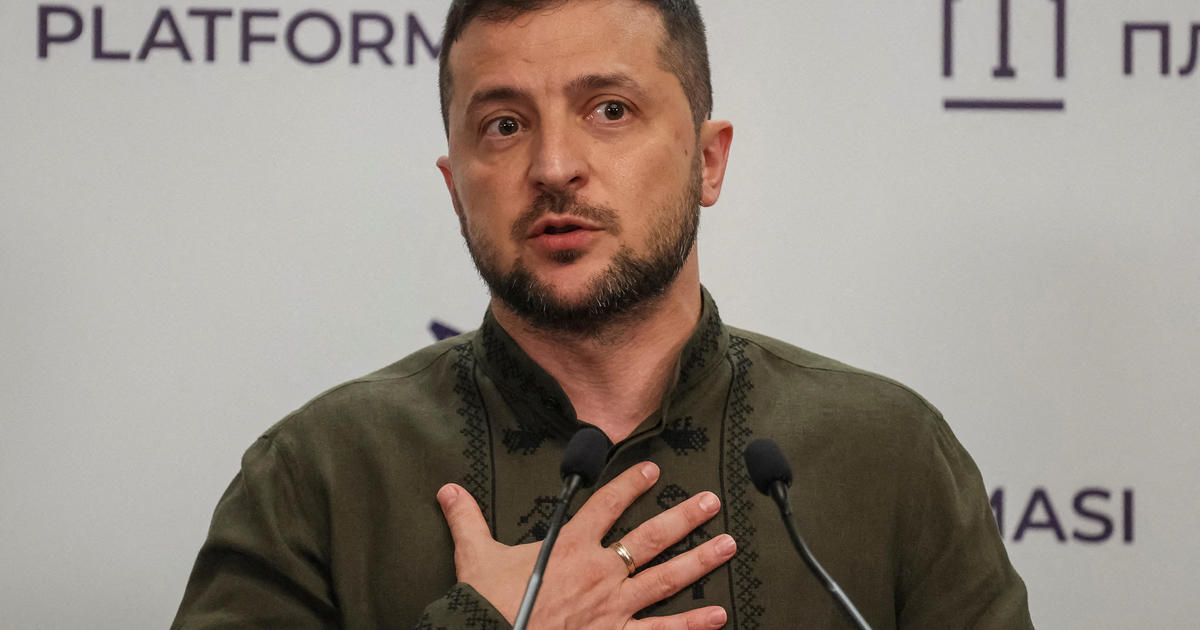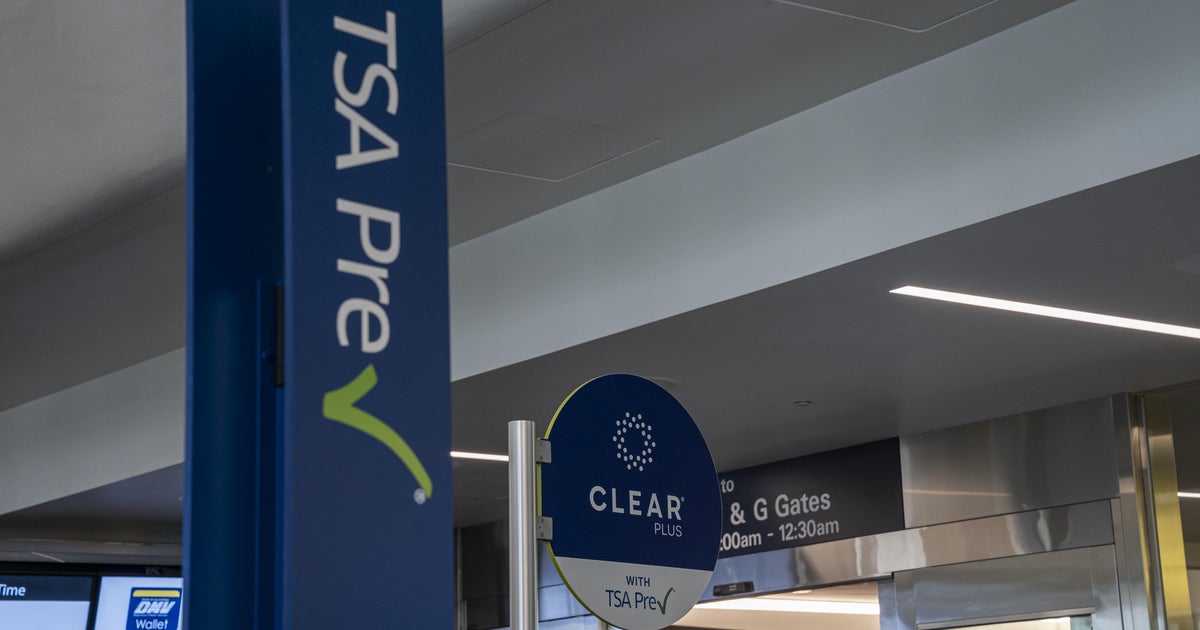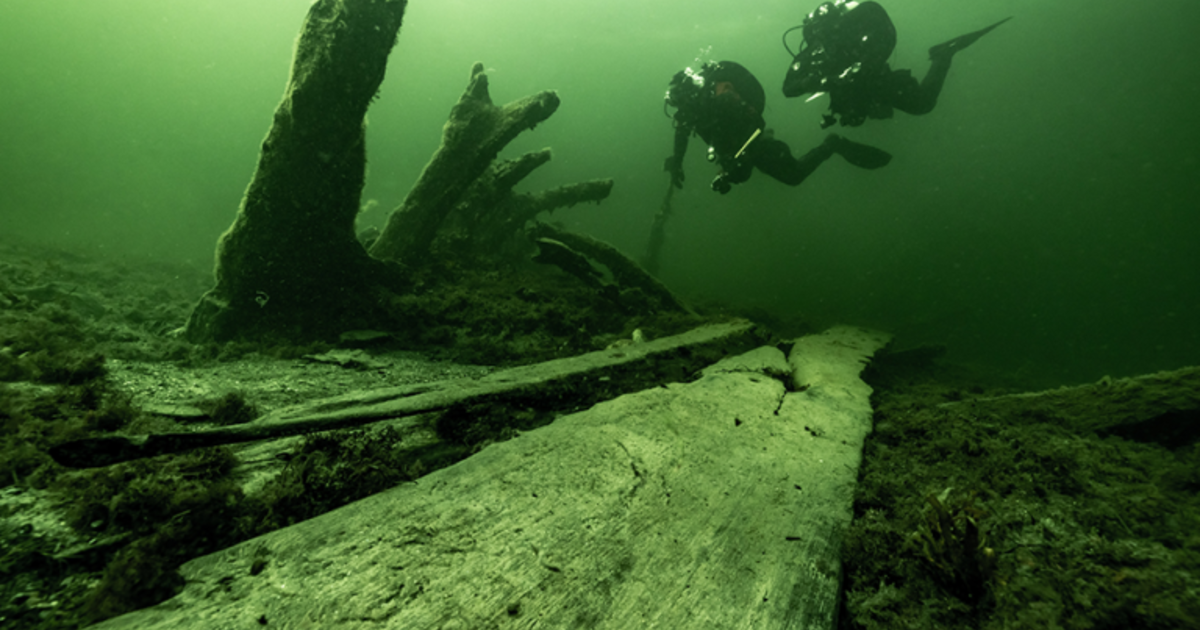Code names, "the quickest" jet skis and a "straw man": Inside the FBI's seizure of a Russian superyacht
American officials had not yet been cleared to take the Russian-owned superyacht Amadea from Fiji when agents from the FBI, the U.S. Marshals Service and the Diplomatic Security Service boarded it earlier this month. Documents obtained by CBS News offer new details on the FBI's investigation into the yacht, as well as the moments after authorities boarded the Amadea.
"They want to take 20 crew and sail east!" the ship's captain, Michael Zerr, texted lawyer Feizal Haniff on WhatsApp on Thursday, May 5.
The day before the seizure, a Fijian prosecutor told a judge "the boat will most likely be moved sometime this weekend," after another hearing scheduled for Friday, May 6. However, officials boarded the Amadea a day early.
Haniff urgently emailed court officials, requesting they intervene, and replied to Zerr in a quick flurry of texts, asking the captain to buy some time.
"When"
"Please hold"
"Please hold"
"Can you hold"
Haniff ultimately managed to stall the United States' efforts to remove the Amadea from Fijian waters. A court granted a temporary stay, freezing the ship in Fiji.
The documents obtained by CBS News shed new light on U.S. efforts to track and confiscate sanctioned oligarch wealth through high-end property like the Amadea. In the case of the 348-foot superyacht, which is still docked in Fiji's Port of Lautoka, that meant interviewing crew, pouring through records on the ship's computers and, ultimately, taking control of the ship by surprise.
The Amadea is one of at least two massive superyachts — with a combined value of about $1 billion — owned by holding companies tied to Eduard Khudainatov, a Russian oil executive who has not been sanctioned, seized since Russia's invasion of Ukraine. Haniff says Khudainatov is the yachts' lawful owner, but in court documents filed in the U.S. and Fiji, American officials are dismissive, arguing he's not rich enough for that to be true. They say he is a "straw man" for the sanctioned Russian elite who really own the yachts.
"Khudainatov is a second-tier oligarch (at best) who would not have anywhere near the resources to purchase and maintain more than $1 billion worth of luxury yachts," an FBI agent wrote in the warrant application, after noting that Khudainatov is not included on Forbes' billionaires list.
Instead, the Justice Department says the $300 million Amadea's true owner is Suleiman Kerimov, a sanctioned billionaire oligarch who made his money in gold mining, and the Scheherazade — a $700 million yacht seized in Italy — is "linked" to Russian President Vladimir Putin.
An affidavit filed in a Fiji court by an FBI agent reveals details of the investigation that were redacted in a seizure warrant for the Amadea that the Justice Department made public on May 6. The agent said he interviewed "numerous members of the yacht brokerage community" to learn about the yacht's "concealed" ownership "behind nested shell companies."
Fijian police and FBI agents also interviewed the Amadea's crew in mid-April, according to the affidavit.
"Multiple crew members identified Kerimov as the true owner of the Amadea and others described seeing Kerimov's family using the yacht on multiple occasions," as recently as February, when Kerimov's children and grandchildren allegedly vacationed in the Caribbean.
One crewmember claimed that ownership of the yacht — which features a helipad and an ornate pool — had been transferred in 2021, in a "backdoor Russian deal," according to the affidavit.
In documents Haniff prepared for court, he accused U.S. authorities of "appalling" behavior aboard the ship. He claimed law enforcement threatened to revoke crew members' visas and offered "bribes" to get a skeleton crew — 20 out of the 35 who were on board — to agree to bring the yacht across the Pacific.
Zerr recounted in an affidavit that an American maritime contractor quizzed him on ship maintenance and details about the crew, such as their COVID protocols.
The Justice Department did not reply to a request for comment.
Fijian law enforcement searched the ship's computers and went through the crews' emails, according to the FBI's affidavit. They found just one that mentioned Khudainatov, sent on March 8. By comparison, police said there were multiple emails about trips Kerimov's family took in January and February — including about their vaccination records, COVID testing and passports. One email from the chief stewardess to the captain detailed "preferences for each guest from the February trip."
The emails allegedly referred to the Kerimovs in code — "G0" for Kerimov, "G-1" for his wife, "G-2" for his daughter and "G-3" for his son. The affidavit also claims the Kerimovs had requested long-term changes, such as a new pizza oven, a new spa bed, and, from Kerimov himself, "the quickest (jet skis) available."
That there are expensive features onboard is one thing both sides agree on.
Haniff cited "delicate marble and stones," and "precious woods and delicate silk fabrics fitted in the Amadea" as reasons why the ship needs a full crew to operate without losing value.
"Interior air-conditioned ambient conditions need to be maintained within stable parameters equivalent to artwork i.e., (69.8 degrees fahrenheit) and 55% relative humidity," Haniff wrote.
Haniff said Fijian law does not include any provisions allowing "a foreign country to seize property and take it back to their country, especially when the predicate for the seizure is not supported by corroborating evidence, but is instead purely based on hearsay allegations."
The appeals court heard Haniff's appeal Wednesday but has not yet ruled.
